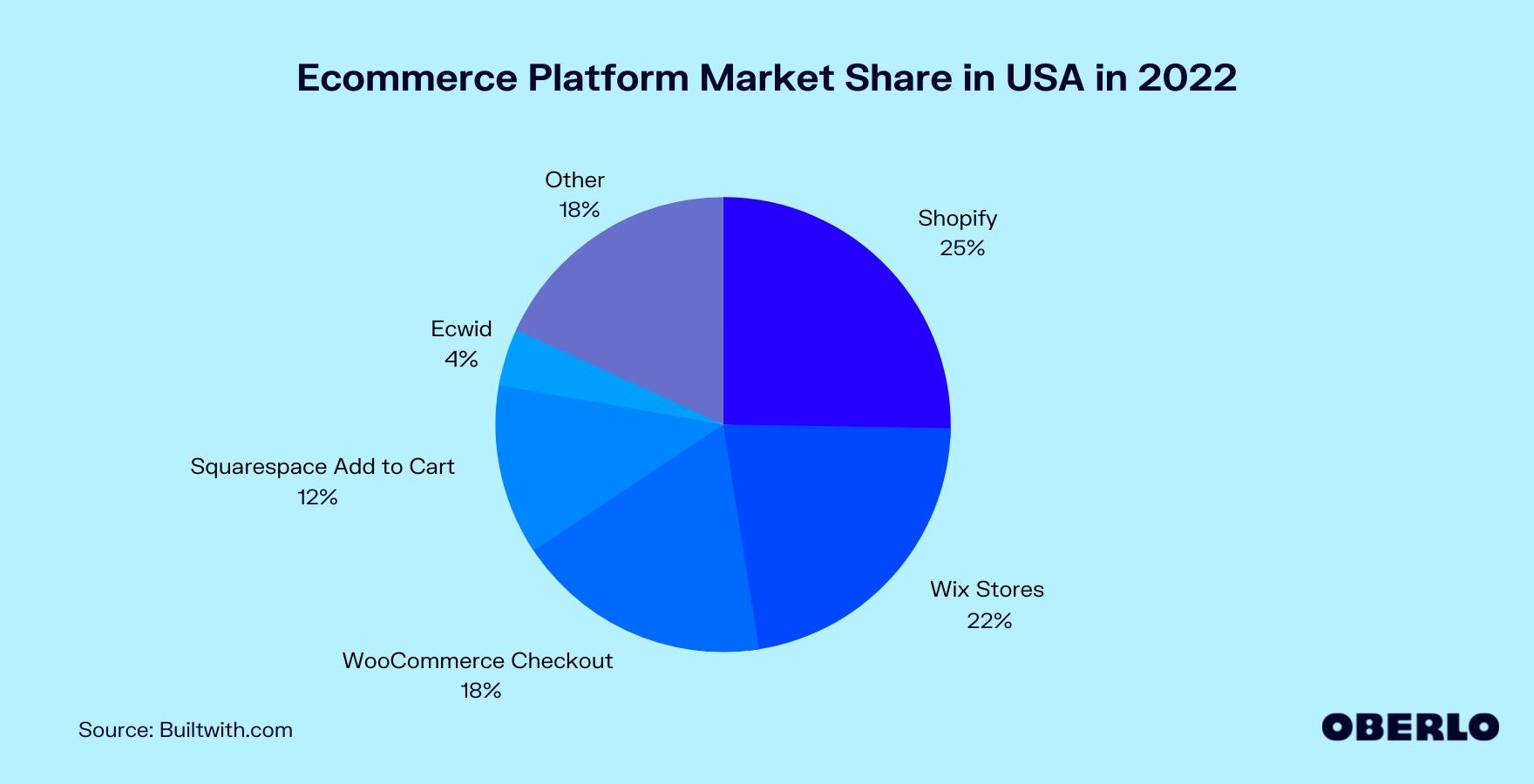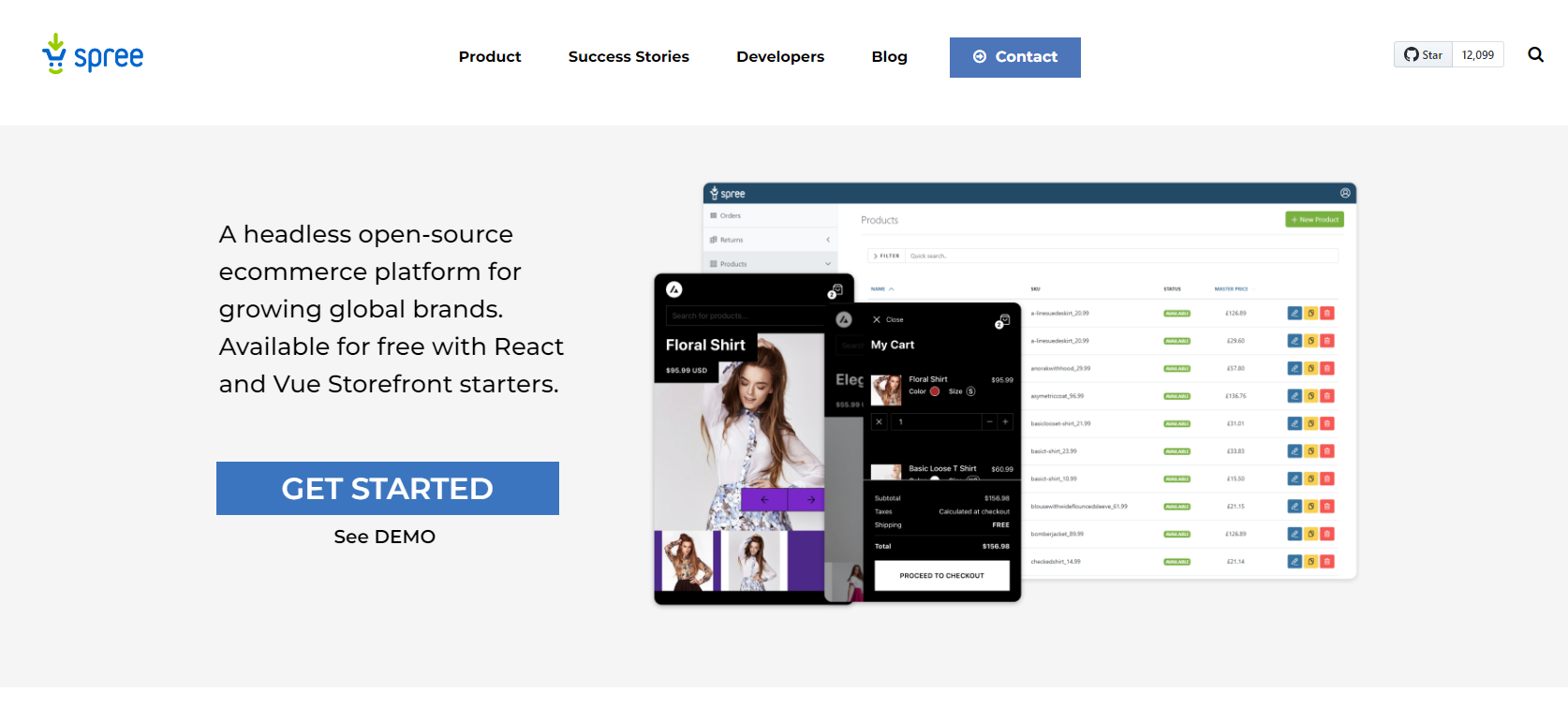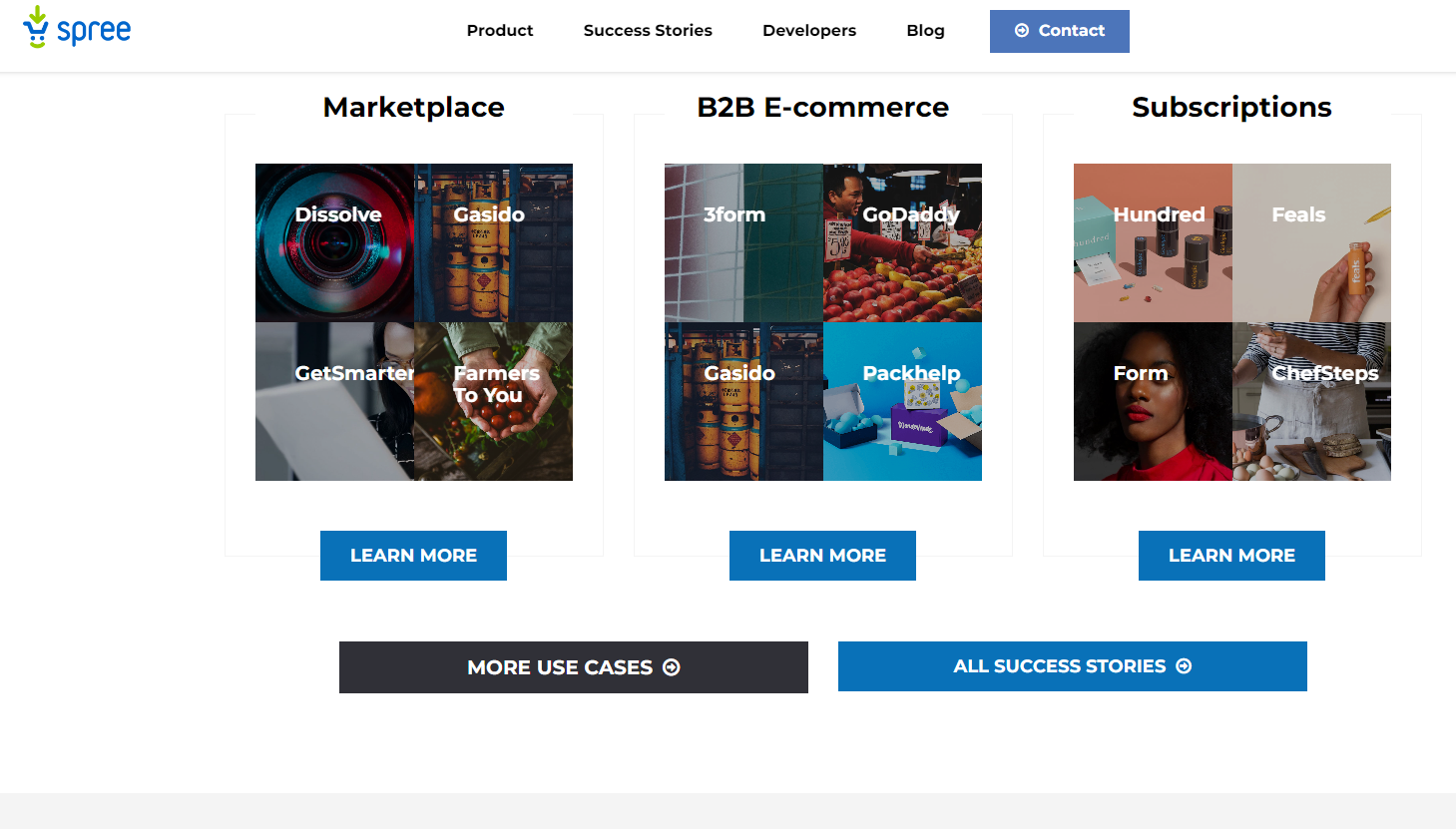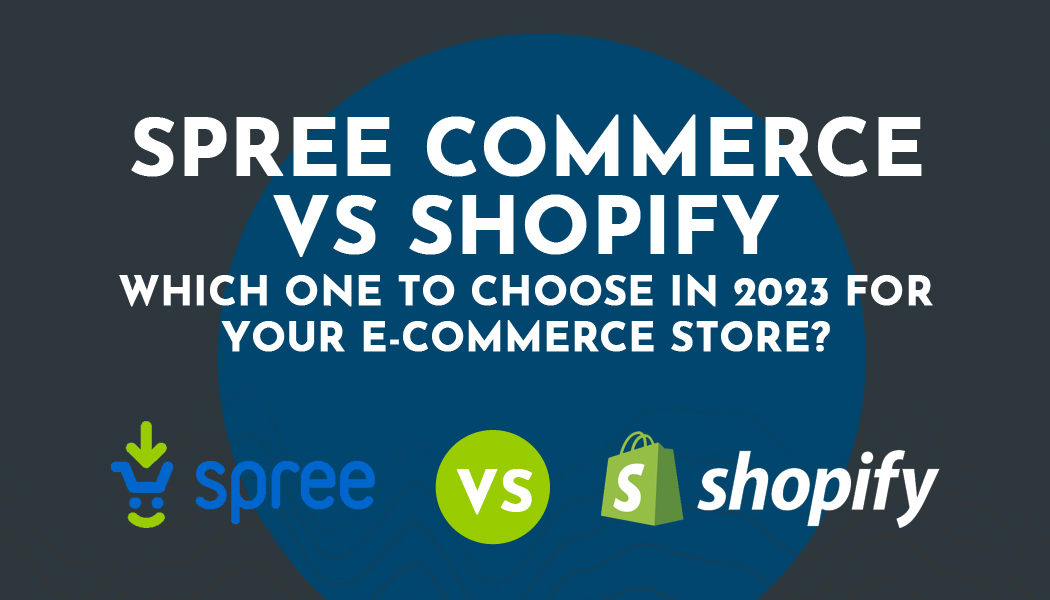Spree Commerce vs Shopify: Which one to choose in 2023 for your e-commerce store?
Shopify and Spree Commerce, both are well known online shopping platforms.
Both offer a wide range of features such as accounting, invoicing, payment gateways, shipping, tracking and Amazon Inventory Management, .
But there are key differences too.
We discover what sets them apart.
What is Shopify?
Shopify is a cloud-based e-commerce platform that has been operating since 2006. The Canadian SaaS/PaaS behemoth claims to have 1.7 million customers across 175 countries.
Shopify allows businesses to create and manage their own online stores.
The platform provides a variety of features and tools for building and customizing an online store
Other features include software for managing inventory, processing payments, and shipping orders.
You can also integrate your Shopify store with a wide range of third-party apps and services to help businesses expand their functionality and reach.

Shopify has emerged as one of the most popular e-commerce platforms, allowing businesses of all sizes to create and operate an online store. The latest stats from Oberlo show it has a 25% market share. Before you hire a Shopify developer for your business, learn more about the platform.
Pros and Cons of using Shopify
There are many reasons Shopify stores are so popular. We shall look at the reasons people use Shopify.
Pros of using Shopify
1. Easy to deploy
Most online shopping site owners are not techies with a degree in computer science. At the most, some can churn out HTML and CSS.
The Shopify app is very easy to use. It has a simple UI that can be learned in a day. Integrating the Shopify Quiz App can enhance the shopping experience by offering personalized product recommendation quizzes, helping customers find the right products and increasing conversions. Of course, most owners ask a site developer to create their Shopify store, but they can log in as admin and make modifications as they deem fit.
2. Lot of templates
It is not expensive to have a developer set up a site. It gets expensive if you want to design the UI and UX from the ground up. This holds true for any platform.
Shopify app offers hundreds of templates.
The theme editor allows easy changes to a template. Through the theme preview, all modifications can be viewed in real-time.

3. Third-party apps
Shopify app allows you to use third-party apps on your site. Native Shopify has minimum features and using apps such as OptinMonster (lead generation software) and SMSBump (messaging app) greatly increases the functionality of your site.
4. Customer support
Website platforms require a lot of maintenance. Very often, you are going to come across problems not mentioned in any community discussion board.
Shopify stores have dedicated 24x7 service for all its paid customers. You can avail of their advice through chat and email. Premium customers have access to voice assistance.
Having customer support means your site can be up and running in no time.
4. Diverse payment gateway
Not only can your customers shop using credit cards, but they can use Stripe, Paypal, Skrill, Amazon Pay, and a lot more.
The world over, since Covid, customers have begun to use contactless alternatives to cards. Apple Pay, Google Pay, and different wallets are now the chosen method of payment. Shopify allows plenty of scope to add payment mechanisms.

Cons of using Shopify
1. Costly solution
The cheapest plan is $29, and it does not offer much.
Plans priced at $71 and $266 are worthwhile but this makes using Shopify app quite expensive.
An outlay has to be planned for.
The problem is most online store owners have a small catalog and want to occupy a niche. Some are offshoots of their physical store.
A thousand dollars a month (apart from paying a developer) is a lot of investment.
Moreover, Shopify asks for a share of profits.
A monthly subscription and share of profits can seem too expensive for many.
2. No email hosting
Shopify does not offer native email hosting. You have to buy from elsewhere, e.g. Google Mail or Zoho, if you want a custom email address.
This adds to the overhead and is one more headache.
3. Liquid setup
Unlike WooCommerce, Shopify does not run on PHP.
Shopify templates use Liquid, a proprietary language.
The outcome is that developers need to learn a new language to service Shopify templates. This reduces the number of developers and the cost of hiring one shoots up.
What is Spree Commerce?
Spree Commerce is an open-source e-commerce platform. It was first published in 2007 and since then has had 1.5 million downloads. Well-known brands and businesses using Spree Commerce include Fortnum and Mason, and New England Patriots.
It’s open source. Thus, there is no install cost, subscription, or license fee. It also means that developers can access and modify the source code. This allows businesses to tailor the platform to meet their exact specifications.
Spree Commerce has been built using the Ruby on Rails framework and offers a variety of tools for building and customizing an online store. These include inventory management, payment processing, and shipping.
Spree Commerce is known for its flexibility, scalability, and easy customization.

Pros and Cons of using Spree Commerce
Spree Commerce is a highly sought-after platform. Its overall downloads are second only to WooCommerce as far as open-source platforms are concerned.
Pros of using Spree Commerce
1. Open source
Being open source, Spree Commerce is free to download, install, use and customize. There is no fee, permission, license, or subscription. All that one has to do is check periodically for updates.
If you want to start an online store with a limited budget, go for Spree Commerce.
2. Flexibility
Since the source code of Spree Commerce is available, the software can be freely modified. When your store goes from 100 visitors a day to a thousand an hour, all you need is a developer to tweak the code and optimize the site.

3. Community
There are hundreds of Spree Commerce developers on Stack Overflow and Reddit.
If you run into any trouble, they will help find a solution. This makes it easier for site owners who face problems with updates and installs.
4. Security
Spree Commerce offers top-notch security. Being open source, hundreds of developers have worked on it. Any bug has long been ironed out. Spree Commerce is also remarkably stable and needs little maintenance.
Cons of using Spree Commerce
1. Outdated technology
Ruby on Rails is no longer the backend tool of choice. Frameworks like Node. js, Laravel, and Django have taken their place. It is difficult to find developers who work with the framework.

2. Limited themes
Your online store needs attractive themes. Unfortunately, Spree Commerce is lacking in this aspect. You could, of course, employ a developer to create a theme, but that would be expensive and take several weeks.
3. Lack of apps
Online platforms never offer every integration you need to make it work perfectly. That is why there are third-party apps that help with email marketing, SEO, and similar tasks. Spree Commerce has very few apps of its own. it also cannot integrate with most third-party apps.
Shopify versus Spree Commerce: Key Difference Between Them
| Shopify | Spree Commerce |
| Proprietary and needs subscription of at least $29 per month. | Open source and entirely free to download and use. |
| Built using Liquid, Shopify’s own templating language. | Built using Ruby on Rails framework. |
| Wide range of templates to suit every business. | Very few choices in templates. |
| Focuses on being easy to use and intuitive. | Focuses on being scalable and flexible. |
| Offers massive range of payment gateways. | Accommodates cards and PayPal. |
| App store with hundreds of apps. | Zero apps to download. |
| Every major third-party app can be added. | Integrations difficult to implement. |
Wrapping Up
Thus, we see that Shopify and Spree Commerce are very different, even though both are shopping platforms.
Shopify is best for those who want an off-the-shelf solution that can be launched with minimum hassle. Hire a Shopify developer and publish your site in less than a week.
Spree Commerce is ideal for those who have a developer team and want to download a platform they can easily modify and use.
One does not triumph over the other. Choose wisely and use the one which suits you.




